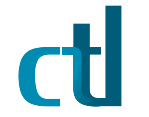 This is the last post in this series that coincides with, and to varying degrees reflects on, the interviews Scott Allen and I have done over the past ten weeks with chapter authors in the Maturing Leadership anthology. I have managed to meet my goal of writing something every week and found it fun and liberating to move out of academic writing and into a freer form of expression.
This is the last post in this series that coincides with, and to varying degrees reflects on, the interviews Scott Allen and I have done over the past ten weeks with chapter authors in the Maturing Leadership anthology. I have managed to meet my goal of writing something every week and found it fun and liberating to move out of academic writing and into a freer form of expression.
To look for a way to make a back end wrapping, I looked back at my first post, and found this phrase, this is not a simplistic set of theories, but a rich and developing suite of interconnected and dynamically evolving inquiries. Going through this set of interviews and writing this set of parallel blog posts, I have a more robust sense of how much this is true, and an even greater sense of perspectival humility to go along with it. So, for this closing post in the series, I want to briefly describe what I see in the territory ahead.
My own journey took a clear turn when I enrolled in a masters degree in organizational leadership in my mid-thirties. I came to that with a set of experiences and personal inquiry into the broad world of ‘consciousness work.’ I went back to school (after dropping out at 18) with the aim of bringing my experiences in this area into contact with what I could find in various academic fields. Now, almost thirty years later, this rich suite of interconnected and dynamically evolving inquiries has led me to turn my
attention to one of the emerging and current topics, how to scale development.
Breaking this down, I see it involving several topics. One is how the understanding of leadership has evolved to include self-awareness, self-leadership, emotional intelligence and more. There is a call to create An Everyone Culture where leadership development is no longer just the prerogative of a few in places of formal positional authority. The imperative to help everyone in an organization grow is seen to have positive outcomes in all manner of metrics.
Another topic is moving from relatively large categories of all encompassing stages of development, (which can be helpful for skilled practitioners in coaching people), to multi-modal micro skill development aimed at creating rich, robust and relevant competencies as emergent properties. The need to customize, contextualize and cocreate development places a new set of constraints on us as practitioners while also providing new affordances.
Related to the development of robust networks of micro-skills is the topic of learning. Moving beyond information transfer through didactic pedagogies, towards a more natural engagement of dopamine to motivate active inquiry, applied practice and micro-reflections, can make learning an addictive habit. (See Theo Dawson’s work, Dan Coyle’s The Talent Code, and this TEDx talk). Coupled with perseverance and curiosity, this approach to natural learning can feed our need to grow.
These three and many other considerations are at the forefront of my attention these days. While the last few years have focused on immersion in these topics, the current desire is to explore the intersections of them and how they can generate new approaches to this ongoing dynamic and evolving inquiry.
